Exclusive 3:16 Interview With Hermann Cohen
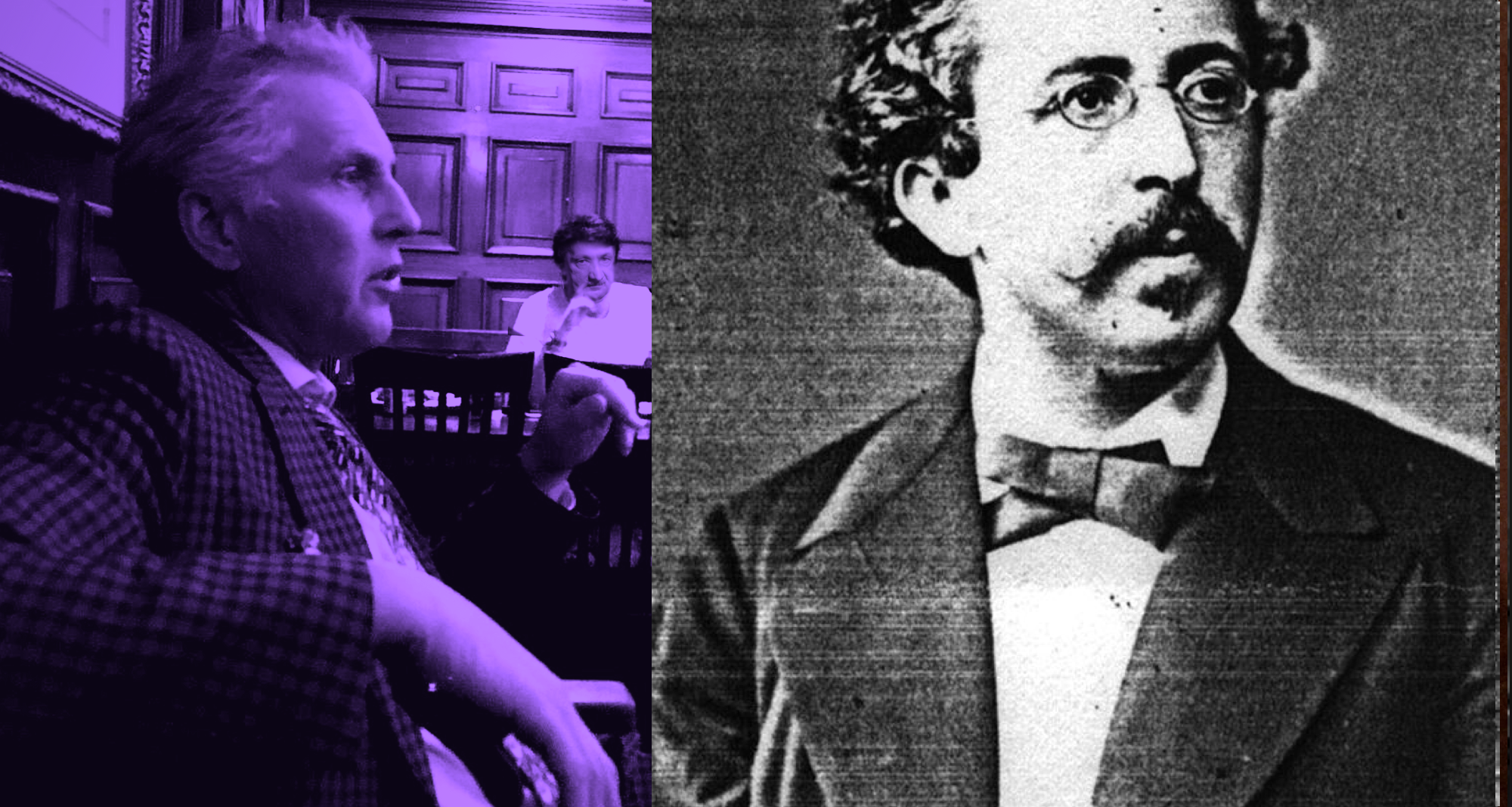
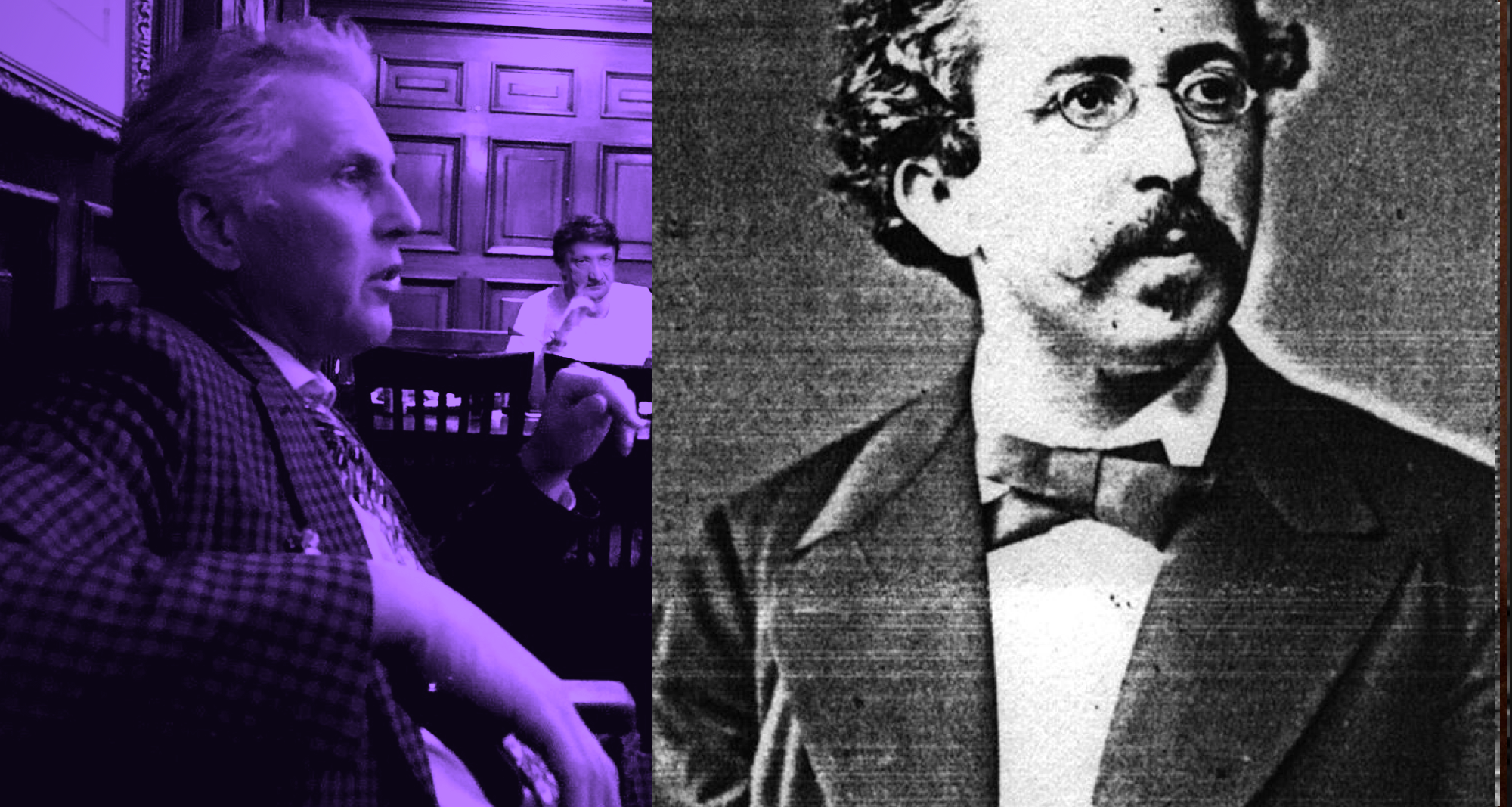
'Hermann Cohen , more than any other single figure, is responsible for founding the orthodox neo-Kantianism that dominated academic philosophy in Germany from the 1870s until the end of the First World War. Earlier German philosophers finding inspiration in Kant tended either towards speculative, metaphysical idealism, or sought to address philosophical questions with the resources of the empirical sciences, especially psychology. In contrast, Cohen’s seminal interpretation of Kant offers a vision of philosophy that decisively maintained its independence from empirical psychology, without at the same time simply lapsing back into uncritical metaphysics. Cohen brings these attitudes to bear on a wide range of topics, writing systematically about epistemology, philosophy of science, ethics, law, political theory, and aesthetics. His anti-psychologism is a defining commitment not only of the Marburg School of neo-Kantianism, founded by Cohen himself, but of orthodox neo-Kantianism more generally. Indeed, that commitment ultimately defined the philosophical context from which, in the early twentieth century, both phenomenology and logical positivism emerged.
No less significant than his influence on academic philosophy, Cohen is his generation’s preeminent German-Jewish public intellectual and religious philosopher. His philosophical ethics and political theory provide the foundation for a non-Marxist, Kantian democratic socialism that informs his more popular and topical writings. He argues publicly for universal suffrage and for the rights of workers to organize democratically-constituted collectives. He also sees deep points of connection between ethics and religion, and develops a view of Judaism as a fundamentally ethical system of belief and practice. He argues that monotheism is the historical source of the idea of universal ethical laws, and thus that Judaism offers the world its first model of a universalist morality. This view of Judaism’s ethical significance ultimately informs Cohen’s public defense of the Jews’ place in Germany not only against anti-Semitic attacks, but also against the arguments of early twentieth-century Zionists.' (from Scott Edgar's brilliant SEP essay on Cohen.)
3:16: What made you become a philosopher?
Hermann Cohen: I wanted to wed the seriousness of faith with the sacred seriousness of science.
3:16: You're a German philosopher. So is there a German philosophy and if so what is it?
HC: Idealism. Idealism is the intellectual conscience of philosophy.
3:16: Oh wow. But what about materialism? Lots of German philosophers are materialists aren't they - Marx, Buchner and all that crew? Are you saying it’s not philosophy? Your friend Lange would be very surprised by that claim!
HC: The Idea is the concept of scientific knowledge. Even the moral must be subsumed under the norm of the Idea. Intuition and feeling must consequently be rejected and surpassed. What remains is the norm of knowledge in its exclusive sovereignty. All concerns and needs of human culture must be, without exception, subject to its direction because Being is the being of thinking.
3:16: Lot’s of you intellectual Germans are mad about the Ancient Greeks but you’re more cautious about them aren’t you?
HC: Well Richard, the beautiful conception of a mythological age is still only mythological. The spirit of modern life is breathed into the old world. That is only poetic, completely mythological. In the face of scientific clarity all those poetic obscurities disappear. One should finally learn that the Greek heaven was not in all places and not at all times blue, and even when the heaven is blue, people are not true to one another and do not love one another as brothers.
3:16: You do philosophy of religion but repudiate all theology don’t you?
HC: I do not want to have anything to do with modern theology because it does not maintain the scientific standpoint. I would never get into a dispute with a theologian.
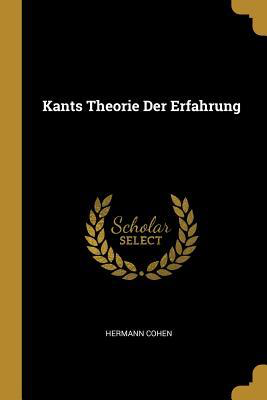
3:16: You’re a great neo-Kantian, trying to get the best reading of Kant. You think that people have misread him don’t you? Before we look at your ideas about Kant’s philosophical ideas I have to ask you what you think about Kant’s writing style. I find him very difficult to read but you don’t do you?
HC: Richard, his style is classical, by which I mean there’s peace in the movement of thought. The composure, the collection and overview of ideas while they march forward, and the intuition of the subtle motifs, connected and opposed, which do not break but which shimmer through – that is everywhere, and especially in the main places, the character of Kantian exposition.
3:16: Well maybe it gets lost in translation. One thing that you do is turn Plato into a Kantian isn’t? You rationalize mysticism.
HC: The Platonic theory of Ideas is a discovery. A discovery I call that extension of scientific consciousness which, by means of a significant a priori combination of ideas , transforms the a posteriori matter of knowledge and paves the way for new paths of research. The idea is the intuition of ground and essence involved in conceptual seeing. Kant recognized that Plato’s ideas are regulative concepts of reflective judgment.
3:16: And this idea about Kant as putting forward an epistemological thesis with his transcendentalism rather than a proto-psychology and proto-physiology is what makes you different from other neo-Kantians like Herbart, Fries, Zeller, Fischer, Liebermann, Beneke and Bona Meyer isn’t it?
HC: Yes it is.
3:16: What were you were trying to establish in your essay looking at the Trendelenberg Fischer dispute regarding how Kant should be interpreted?
HC: Well Richard. I work hard only on Kant and everything that concerns him. For this reason I must attack Trendelenburg. In my opinion he has completely misunderstood Kant. A dispute about the meaning of space and time in Kant concerns all efforts in philosophy.
3:16: Is this because it gets to the heart of the dispute between idealism and realism?
HC: Yes. Now to get started in this we must accept the strict borderline Kant drew for all future metaphysics and therefore for all psychology. Trendelenberg is wrong and Fischer right that the central doctrine of transcendental idealism would collapse if the a priori forms of subjectivity were also true of things-in-themselves.
3:16: And you are keen to produce what Kant actually thought accurately?
HC: I aim to present the historical Kant in his own form Richard, as he is present in original documents. Without complete surrender to the text no mind unlike oneself can be understood. The healthy reaction which constrained constructive pretentions in questions of ancient philosophy have not happened with Kant. The worthy work on Aristotle has brought forth rich booty: should we expect from Kant , treated with similar philological exactitude, a lesser gain Richard?
3:16: So that’s your methodological approach to Kant. We must constrain interpretations as much as we can by sticking to the text. You’re basically agreeing with Droysen, Dilthey and Simmel that we must relive the past and reconstruct it then?
HC: Yes. One cannot give any judgment on Kant without betraying in every line what a world one has in one's head.
3:16: You say you want to ground Kant on the a priori. What do you mean by that?
HC: Simply put Richard, the proper correlate of the a priori is the transcendental.
3:16: And what’s the transcendental then?
HC: I call all cognition transcendental that is occupied not so much with objects but rather with our mode of cognition of objects insofar as this is possible a priori.
3:16: So it’s to do with knowledge of our knowledge of things, not our knowledge of things?
HC: Yes.
3:16: So for you the a priori can’t be a psychological faculty, an innate faculty we have, because the a priori is the condition not only for an object to be known but also for something to be known as a subject?
HC: Precisely. If Kant’s transcendental deduction as just a justification for psychological analysis of inner experience then metaphysics becomes psychology. But the transcendental is about the necessary conditions of the possibility of experience.
3:16: Trendelenberg of course didn’t like this because he was arguing that to be a realist there had to be a correspondence between our representations of what there is and what there is – he said that this is the 'tense nerve of all knowing'. Hasn’t he got good point? After all, we do want to know about things and not be stuck just knowing about ourselves don’t we?
HC: Oh you just end up with empirical, material idealism with that, Richard.
3:16: So you’re saying that the noumenal in Kant is nothing more than a negative limit. It shouldn’t be thought of as having reality? You eliminate the thing in itself and see it as just a hypostasis of a limit of knowledge?
HC: Yes Richard. That’s why I reject a Platonic Idealism as a mystical idealism.
3:16: Yet when you criticize Lange and his critique of materialism you think he misunderstands the significance of Plato don’t you? In fact, you seem to say in your early works that Kant and Plato were in the same ballpark.
HC: Well, Plato was the founder of the system of philosophy because he was the founder of logic, and through it the founder of idealism.
3:16: Didn’t Kant himself say that his own philosophy wasn’t Platonic mysticism, which kind of suggests he thought Plato’s was, and that he thought he was doing something fundamentally different from him?
HC: Plato’s doctrine of ideas posed for the first time in the history of thought the problem of knowledge. In that consists its extraordinary original meaning among the creations of thought. With it also begins idealism.
3:16: Is skepticism and the possibility of getting things wrong, that we’re not infallible, one of the innovations of Plato’s philosophy, along with the idea that thinking, of thought or spirit, is real?
HC: Yes. Not being infallible is a critical motif. Skepticism stresses the nothingness of the reality of sense perception. These are the source of epistemologically grounded epistemology.
3:16: And just to be clear – the things in themselves are just regulative laws for the possibility of experience. For you they’re not what Kant thought, which was entities with an independent and inaccessible existence.
HC: Yes, the law is the expression of reality; the law is the thing-in-itself.
3:16: So you don’ think thought depends on subjective beings- which is the position of subjective idealism, but you don’t think thoughts are transcendent entities inaccessible to us either, which is the position of the objective idealists.
HC: Exactly. Mine’s a critical idealism!
3:16: And why is it important that ideas can be valid or true whether or not we think them?
HC: Because that shows that they can’t be mere creatures of thought. They’re not just our creations or inventions. Mind you in Plato’s theory of forms a subjective remainder is preserved: the dependency which consists in the relation of this being to the thinking of it. Towards this – the thinking - that being is not transcendent; to this thinking , being is not inaccessible.
3:16: You think Plato’s doctrine of recollection important to understanding Kant don’t you?
HC: Well, in that it is the birthplace of the a priori. Plato’s methodology is assuming that what is sought is already found, so that from its consequences and their connections we find the thing again. The idea is thought of as hypothesis.
3:16: But if just an hypothesis then how is an idea knowledge?
HC: Dialectic. Using the hypothesis as first principles, but only as hypotheses – that is to say, as steps and points of departure into a world that is above hypotheses, in order that reason may soar beyond them to the first principle of the whole.
3:16: So with hypotheses as first principles I guess you are here suggesting that we never cease to ask the question ‘why?’ and that this process never ends, each answer being the next hypothesis.
HC: Yes.
3:16: So returning to your criticism of Lange, you think he saw Platonic ideals as things when its really about methodology.
HC: Yes
3:16: And you don’t agree with Lange calling Kant – when developed or corrected – doing nothing more than the physiology of the sense organs – basically a psychological-physiological research program do you?
HC: Kant’s not about the causes of synthetic a priori conditions of knowledge.
3:16: So Lange’s blind to the transcendental problem?
HC: Yes.
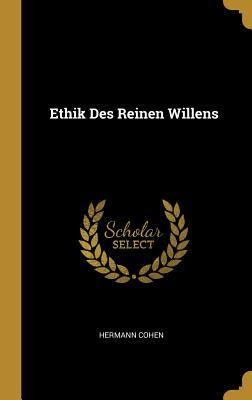
3:16: And you also disagree with Lange’s idea that morality is founded in the power of our minds for the invention of ideas?
HC: I cannot agree with this deadly serious view and I have given an exposition of the ethical side of transcendental Apriorism. Without logic there is no ethics.
3:16: What are ethics then? Can they have a transcendental deduction?
HC: No. They’re about what we do not what’s the case.
3:16: Are they just fictions then?
HC: No, they have objective reality, validity. The fundamental issue here is to show the possibility of another kind of reality, the kind of validity of something supersensible. We should propose an ideal of a community of autonomous agents.
3:16: So this is Kant’s third formulation of his categorical imperative – the idea of a kingdom of ends where we all treat others as having the same ends in law and community? But wouldn’t it be just as rational for me to treat everyone as means to my own ends?
HC: No because of the idea of freedom. All free-will means is that we should treat others as ends and not as means.
3:16: So we use the idea of freedom to systemize our moral knowledge. Experience is important to you too though in this area isn’t it?
HC: Only on the basis of experience can ethics ground itself.
3:16: So is the idea of freewill a purely regulative idea, not a concept of causality?
HC: Yes.
3:16: So we can’t produce a transcendental deduction of this freedom?
HC: Of course not.
3:16: You disagree with Lange’s political philosophy as well don’t you?
HC: Well, he’s a political pathfinder of our time. But I regret the naturalist foundation and his links to the German founders of political Party Socialism.
3:16: Marx and Engels?
HC: Yes.
3:16: Do you think Kant’s philosophy is science?
HC: Yes. Science consists in the ideal of a system founded on constant methodological practice. In Kant we have the transcendental method. How natural science as such is possible. Which conditions of knowledge it presupposes, on which principles it rests, these are the questions whose answers , according to Kant, make philosophy into a science. We must recognize the spirit of Kant’s philosophy in the idea of making hypotheses of science.
3:16: So like with Fischer, Liebmann, Bona Meyer and Windelband, you say philosophy’s future is epistemology. How important is mechanics in this conception?
HC: It’s a final authority.
3:16: Is Kant’s philosophy relevant in jurisprudence?
HC: The inner independence of positive right cannot be maintained through the complete rejection of natural law in every sense.’
3:16: Savigny is critical of this stance because he thinks the a priori can’t be allowed to interfere with empirical research so we should study positive right without interference from natural law.
HC: He’s right. But we mustn’t lose the support of the moral nature of human beings.
3:16: So we must keep to the philosophical investigations of the a priori foundations of natural law even if we do the historical, empirical research as well.
HC: Yes.
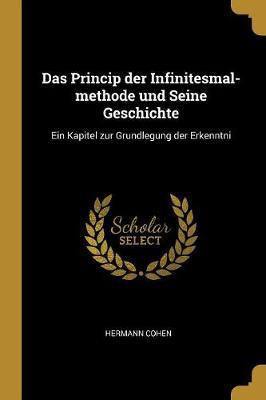
3:16: You’ve revised a lot of your thinking about Kant latterly haven’t you? The distinction between understanding and sensibility is important in this change of heart isn’t it?
HC: It’s a new beginning.
3:16: This starts with your book on the infinitesimal – the concept of something smaller than any given number yet larger than zero - which you think can’t be justified by math alone and so needs a transcendental justification.
HC: Yes, it needs a theory of knowledge, or better, a critique of knowledge.
3:16: Because the concept involves knowledge involving thinking and intuition? And so psychology has nothing to do with this transcendental work?
HC: Exactly. We’re concerned with the content not origins of knowledge. What other approaches lack is the thought of reality as a motif or problem.
3:16: So reality can’t be just an object of sensation?
HC: No because all objects must first be objectified or apriorized.
3:16: So reality is the ground for sensation? Sensation can’t ground itself?
HC: Recall Kant Richard when he said that in all appearances the real which is an object of sensation, has intensive magnitude. And thus a degree of intensive reality is a property not of sensation but of pure thinking, and only as such is it attributable to sensation in order to apriorize it.
3:16: And is this why you also dismiss those who say that the real is whatever appears in space?
HC: Yes. That I may posit an element in and for itself is the desideratum conforming to the thought of reality.
3:16: So reality is anything with this intensive magnitude of Kant’s and we know this because we can assign it a place on a continuum.
HC: Exactly yes.
3:16: You think Kant made a mistake conflating reality with existence don’t you? He thought reality was given to the senses and if so reality had to be given to the senses just as existence must be. This is the mistake for you isn’t it?
HC: Yes because reality is a special performance of thought. Whoever sees in perception the natural right to certainty , the absolute source of actuality, is beyond epistemological instruction.
3:16: So understanding is prior to sensibility – they aren’t like Kant thought equal and independent sources of knowledge?
HC: Exactly.
3:16: So what is crucial to this approach to idealism?
HC: It stresses the constructive character of thinking. The world of things rests upon the basis of the laws of thought. Things are not absolutely given as they appear to strike our senses. There can be no things other than in or out of thought. And it all begins from the fact of science.
3:16: The laws make it non-subjective, as do the claim that empirical things are for science to investigate?
HC: Yes.
3:16: Does that include existence in space itself being a product of this differential?
HC: Yes.
3:16: Wow. So that goes beyond Kant. Doesn’t this idea of higher orders of differentials raise the question: how can we derive the many from the one?
HC: Higher order differentials contain multitudes. Like monads.
3:16: Bertrand Russell accuses you of treating differentials as separate entities, as the intensively real elements of which the continuum is composed. But surely differentials can’t be actual things because the thing about counting is that for any unit one can always go beyond its value to find something lesser. You yourself say that counting never stops. Calling a differential a thing is to mistake a limit thing for an actual concrete reality isn’t it? So doesn’t your position sound a bit paradoxical here?
HC: You’re right. Mind you, with differentials we get rid of the cursed question of the thing-in-itself. Yet the fact that we can generate the object from a differential means that the finite has its origin in something supersensible. The ontological status of the differential has validity or worth and mustn’t be confused with existence or reality.
3:16: Validity is for you reality in the sense that it is true whether or not we think of it at all, and whether or not humans are conscious of it at all. You see Plato as a great forerunner to your approach to Kant don’t you?
HC: Yes, as I said earlier, philosophy is, in an irreplaceable way, dependent for its concept of knowledge on mathematics.
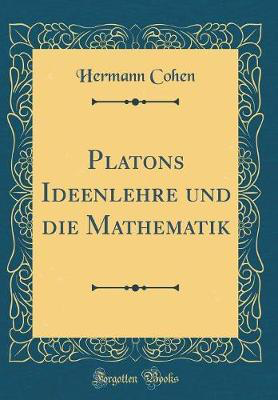
3:16: Aristotle is the great antipode to this then?
HC: Yes. In its lack of mathematics lay therefore the defect of Aristotle’s physics.
3:16: There is something of value in Aristotle nevertheless for you?
HC: Yes. Epistemology is one sided if the psychological interest does not come to its side and help and illuminate. The historical contribution of Aristotle consists in saying a word , and providing validity, for sensualism in its justified limits.
3:16: For you the great moderns on your side, and Kant’s, are Descartes and Leibniz aren’t they, and Leibniz is the closest predecessor?
HC: Indeed although he didn’t see the inexpungible right of sensibility.
3:16: So Leibniz ends up being too rationalist.
HC: Reason alone cannot produce nor testify knowledge of the object of nature. Remember the old Kant dictum Richard – intuition without concepts is blind, concepts without intuition are empty!
3:16: So Locke errs the other way for you – not enough understanding that we need rationalism – and mathematics – for knowledge.
HC: Yes. Remember, Kant’s starting point was the fact of Newtonian science. Experience is just all those facts and methods of scientific method.
3:16: But I don’t think that would intimidate Hume and he didn’t use mathematics, but Kant took his skepticism very seriously.
HC: Hume fails to see that maths are essential to the constitution of nature and mechanics uses maths to legitimate the facts themselves. In this comprehensive sense Kant began with the word experience ; he sought to make the concept of experience the concept of the knowledge of nature. Kant’s task is primarily the examination and discrimination of the cognitive value and grounds of certainty of Newtonian natural science. All facts of consciousness have a priori presuppositional concepts.
3:16: So we aren’t doing psychology?
HC: It’s obviously metaphysics Richard.
3:16: If sensations aren’t the ground of everything but rather we need have these a priori concepts, then isn’t idealism in trouble.
HC: This is the stumbling block for idealism. Locke used the modern expression “matter of fact." But wherein lies the ground of validity for an assertion of fact? In the claim of thought? Or merely in the perception of a fact? That is the question Richard. Reason alone cannot produce or testify knowledge of the objects of nature. And transcendental reflection does not instruct us how to ground the possibility of inner differences between sensations, the empirical manifold. On the other hand sensation seems ineffable. Sensation is only the manner in which consciousness relates to its content for the purposes of making it into an object. It is a false apriorism to derive the particular content of experience from general possibilities.
3:16: You seem to be pulled in two opposing directions here.
HC: I was.
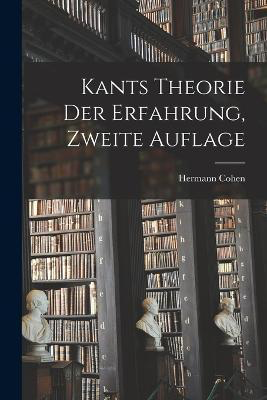
3:16: You were at this point also interested in writing about aesthetics weren’t you?
HC: Yes. The aesthetic principles of German philosophers. Lessing, Mendelssohn, Winckelmann, Herder, Kant, Schiller, Schelling, Herbart, Schopenhauer and Hegel. It’s the third part of my Kant!
3:16: It’s a defense of classicism isn’t it – if Kant’s aesthetics are right then German aesthetics have gone the right way?
HC: Yes. It’s participation in a national and world historical cause. I aim to build the foundation of aesthetics in the system of philosophy. Aesthetics must be systematically independent.
3:16: So for you science deals with laws about what is, nature; and morality with laws of what ought to be the case, freedom: and so what is the special domain of aestheics?
HC: Feeling. Human responses to science and morality. Feeling presents and produces content.
3:16: Kant missed this didn’t he?
HC: He failed to see the resolution of moral and natural content in feeling.
3:16: So art idealises nature and endows it with morals when the will and understanding interlock?
HC: Yes.
3:16: So from you we get the sublime as nature dominating morality, humour when nature dominates morality and beauty when they are harmonized?
HC: Good . Yes. The sublime is a limiting case of beauty.
3:16: Whereas Kant thought they were equals.
HC: He did.
3:16: How is the aesthetic more than just mere subjectivity then?
HC: Aesthetic judgments presuppose the noumenal substrate of humanity, the idea of personality, which is the moral idea.
3:16: So beauty is not just feeling but also subject to morals, and if there are universal moral laws then you can go beyond mere subjectivism.
HC: yes.
3:16: The Romantics don’t think Kantian formalist disinterestedness is right. They want more feeling and emotional content and less formalist purity. What do you say to them?
HC: True. All objections, crude and refined, made against Kant in this century relate to his unbearable formalism. But form is nothing more than the law for the production of content. It includes the will as much as the understanding.
3:16: So classicism is the right road, and Romanticism is a mistake, as your old mentor Heine would also say? Wagner’s theory of aesthetics is the apotheosis of the Romantic mistake isn’t it?
HC: This theory is alien to German aesthetics; it has injured its most elementary concepts, denied its most inward strivings, and torn the unity of its history.
3:16: If philosophy is only able to define the logic of the sciences then neo-Kantian philosophy didn’t have a very important role in answering any of the questions philosophy had traditionally been asked to answer does it? Your work, from its own perspective, starts to look like empty scholasticism. How did Plato help you face this crisis?
HC: Plato was always concerned with the questions of human existence, of human creativity. His highest and dearest method, of hypothesis didn’t seem to work with notions of the good. But I was against the metaphysics of the absolute.
3:16: Because then philosophy would not be scientific?
HC: Yes. Without logic, no ethics. But also the honest division between ethics and logic.
3:16: So you have a dilemma. And it’s largely due to the idea that if philosophy is to be scientific it must be systematic.
HC: Yes.
3:16: Is that why Nietzsche is your antithesis and nemesis - he’s aphoristic not logical and he knows no history of philosophy according to you?
HC: Exactly.
3:16: In your late work on logic you seem to repudiate your idea of limit concepts and the like and start arguing that thought can create its own content, like Hegel once said of Schelling, you’re shooting absolute knowledge out of a pistol.
HC: This is my notion of ‘pure thinking’, yes.
3:16: This seems more like Hegelian metaphysics than neo-Kanianism. You now refute Kantian dualism between understanding and sensibility, concept and existence, possibility and reality?
HC: I do.
3:16: Is logic metaphysics for you?
HC: I dismiss the ghost of a purely formal logic yes. I’m against the latest English logic.
3:16: I'm not sure Frege would be happy with you here never mind the English.
HC: Logic is about the identity of thinking and being.
3:16: And do you still want to exclude the idea of metaphysics as the knowledge of the absolute or unconditioned – Schelling and Hegel’s type of metaphysics?
HC: Yes. Pure thinking is Kant’s concept of a priori thinking.
3:16: So we only know of objects what we produce of them in science. And that’s why it’s pure thinking – we understand perfectly only what we produce because only what we produce to ourselves is transparent to ourselves. And this is where Plato comes in with his method of hypothesis.
HC: Indeed in Plato pure thinking acquired its methodological value.
3:16: Because whatever appears to us as a given we can always take as an hypothesis for further questions forever. We never need rest. Is this how you resolve the question about how we get a manifold from a unity?
HC: Yes. The secret of idealism is in resolving the variety of things int the differences of ideas.
3:16: So Kant’s wrong in thinking maths is synthetic apriori, and there’s a distinction between form and content, that there is a dualism between essence and existence, universal and particular? So is your notion of pure thinking metaphysical?
HC: No. Think of pure thinking in regulative terms Richard, in terms of Kant’s milder interpretation of Plato’s theory of ideas we spoke about at the beginning of the interview.
3:16: So pure thinking is something we strive for rather than have achieved. It’s through this that we will achieve the systematic unity we need for philosophical thinking to remain scientific. The dualisms are then matters of degree rather than kind. And pure thinking is paradigmatically for all thinking, not just, as Kant had it, the a priori?
HC: Yes.
3:16: Let’s turn to your thinking about Spinoza. You start off rejecting his pantheism and end up reviling him as a traitor to the Jewish people. But in between you admire his theory of affects don’t you?
HC: Spinoza writes that the highest good for a human being is in the intellectual love of God where love is an affect of joy accompanied by this knowledge of God. This devotion is the true worship of love Spinoza limited the freedom of knowledge and made the power of love, the power of divine worship, limitless. This doesn’t come from immersing myself in the divine essence.
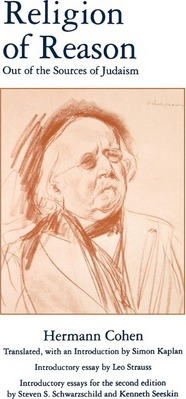
3:16: You have written about Jewish philosophy haven’t you?
HC: The conflict between faith and knowledge was the driving motif of all philosophy of religion in the middle ages. Attributes of God are reducible to norms of morality so theoretical knowledge has retreated before ethics.
3:16: You follow Maimonides’s approach to these attributes which according to him are reducible to the single idea of love. But you want to place limits on theological speculation – so you remain Kantian in this . One big question is who we should love. This seems a pressing issue at the moment as immigration and what to think about the foreign and the other looms large in politics. So who should we love?
HC: Our neighbor. When we’re thinking about immigration, and human rights in Israel we need to consider this .A neighbor is not just someone from my neighborhood or nation but is someone who lives near me even if I don’t share the same ethnic origin or religion. We are expressly commanded by Scripture to treat the stranger as if he were our own brother. Jews are cosmopolitan. All people are deserving of fair and just treatment simply as human beings , regardless of their religion or ethnic origins.
3:16: So you are arguing against the traditional idea of Jewish ethics according to which the Jews are a chosen people.
HC: It’s a perversion to think a neighbor is someone with whom I share a feeling of race. Think of the idea of the sons of Noah. They lived in Israel but didn’t share the same religion but as long as they observed a few basic laws they deserved the same rights as the Jews. Religion and politics were separate in the Israelite state. The idea that the Jewish state was a theocracy was an illusion. The Christian concept of love thy neighbor does not mean anything different from this Jewish concept. The moral concept of man of the New Testament was simply taken over from the Old. Love thy enemy is a Jewish precept. The Talmud has the notion of groundless hatred which states that all hatred is groundless, especially of one’s enemies.
3:16: The big theological divide then between Judaism and Christianity is Christ claiming that none came to God except though him. This is where correlationism comes in for you doesn’t it?
HC: Reconciliation between man and God requires correlation.
3:16: So no mediator like Christ.
HC: Yes.
3:16: You think people who make religion a moral doctrine are making a terrible mistake don’t you?
HC: Yes because the differences between religions are important for the content, for the justification and for the execution of moral doctrines. To be a Jew is to recognize the singular God as the ground for existence, as the support for the world. Israel’s right to historical existence stands and falls with its singular and unique God.
3:16: So for you the God of Israel is not the same as the God of Christianity or Islam then. Didn’t you once say that Israelite monotheism and Protestant Christianity were more or less the same?
HC: Yes but I changed my mind. There’s value in doctrinal dispute.
3:16: So you’re against theological assimilation with other religions. And is this because you think there’s a danger of losing the distinctiveness of Judaism if we don’t stress differences – and the rise of anti-Semitism makes this a very real issue for you?
HC: Exactly.
3:16: You think Jews have to protect their doctrines and that poor Jewish youth needs to be educated in this because it’s from them that Judaism will be preserved?
HC: I do. As the Talmus has it: be concerned for the children of the poor, for it is from them that comes the Thora.
3:16: Is philosophy important to Judaism?
HC: The philosophy of Judaism is the essence of Judaism and without philosophy cannot be understood. Teachers must be more than historians and philologists, which is the disadvantage that philosophy has suffered of late in the Wissenschaft des Judentums.
3:16: What is the Jewish God then?
HC: God in Judaism simply means the guarantee of the single good. The ancient prophets were not at all interested in the nature of God. Man is the maker of his own destiny.
3:16: But isn’t that what you’ve just said is a mistake – you’re reducing religion to a moral principle?
HC: Religion must be aufgehoben in die Ethik – hmm, aufghehoben’s Hegelian for preserving and negating something and lifting it higher.
3:16: Ok. So you’re thinking religion has to be lifted out of a mythical realm and into a rational, scientific one, and given that for you the choice is either about nature, ethics or aesthetics, a scientific religion must be ethics. Is that right?
HC: Yes.
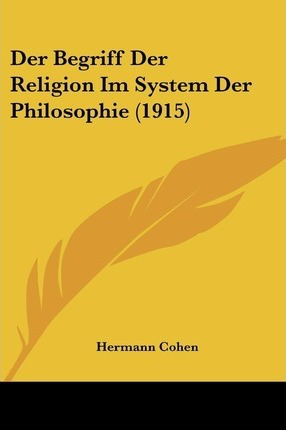
3:16: But doesn’t that imply the end of religion really because all we’re left with once it’s taken out of myth is practical philosophy? It’s a move towards a kind of humanism isn’t it? Hegel would never approve.
HC: No, God is needed as an ontological bridge between ethics and nature, performed by God and specifically by providence. The God of Judaism is the God of morality. In the scientific and popular treatment of our religious questions we should do more than hitherto to make it our task to make our idea of God the leading concept for all our problems. The singular God is the God for all humanity. There is no difference between the children of Israel and the sons of foreigners who can become priests and Levites.
3:16: That doesn’t sound like the old version of Yahweh Hermann.
HC: The idea of the absolute belongs in the dustbin of the old metaphysics.
3:16: And you criticize Christianity because it remains in the realm of myth because of its emphasis on the individual’s salvation rather than the moral bonds between people don’t you?
HC: Yes. All isolation leads to pietism.
3:16: If foreigners are equal to Jews then presumably Zionism is a mistake? You actually think Zionism is a form of secularism don’t you?
HC: Home is wherever you live. Your people are our people, for your state is our state. Zionism is national-Jewish chauvinism. They hold that modern man stands above and outside of religion. But for a modern Jew there is just the meaning, the spirit, the zeal, the enthusiasm for our religious tradition.
3:16: So a German Jew has to be at home in Germany, an English one in England and so forth. Yours is a cosmopolitan vision?
HC: Yes.
3:16: So Jewish nationalists are wrong about there being a Jewish culture – Jews basically take their culture from the arts and sciences common to all peoples. The thing that makes a Jew Jewish is just one thing, belief in the God of Israel?
HC: The task of the Jews is to work for the messianic age in the state of their home.
3:16: Is your last work on ethics - ‘Ethics of Pure Will’ – linked to your ideas about Judaism?
HC: Yes, it’s to show the meaning of Judaism within a philosophical system. In the web of my scientific views stands my Judaism.
3:16: So ethics is fundamental to philosophy?
HC: Its heart and soul lies in ethics. Where from and where to are central to ethics.
3:16: Can’t they be answered by religion.
HC: No. It is the foundation of the science of man. Ethics presupposes logic, but logic is not ethics. Ethics treats the methodology of the human sciences.
3:16: Just as logic treats the methodology of the natural sciences?
HC: Exactly. Ethics treats truth in the sense of the validity of ethical knowledge. The method is the creative method of Plato – there is no foundation to this knowledge but only the eternal activity of founding.
3:16: So we have pure thinking in logic and pure willing in ethics.
HC: Yes. They are really different perspectives on the same thing.
3:16: Is this where the notion of purity comes in?
HC: In logic purity is pure thinking which presupposes nothing but is constant creative activity but that has an ethical origin.
3:16: So thinking and willing purely means that truth is the result of willing as much as thinking and so there cannot be truth without logic but nor can there be truth without willing.
HC: Yes. Logic is as dependent on ethics as vice versa.
3:16: Wow. So how does this tie in with religion?
HC: Ethics absolutely cannot recognize the independence of religion. Religions have arisen and persisted in the more or less clearly expressed conviction that there is morality only through them; they allow a human, natural or philosophical morality only as a concession, over whose consequences a veil is spread. Against that, our ethics maintains the sovereignty of ethics. It can recognize religion only as a natural state whose cultural maturity falls to ethics. And so nothing more remains than to use religion as a means to culture and to make it increasingly useful for this clear goal: that it leads to the end of religion . Religion must be used as a means to prepare ethics for its passage into general culture.
3:16: So you don’t think religion and philosophy are saying the same thing at different levels of conceptual rigor, the sort of ‘double truth’ thinking that Hegel and Spinoza suggested?
HC: There cannot be two kinds of knowledge.
3:16: In which case the fact that you think God is essential to all this, even though religion presumably withers away, God must be a different God than that known in religion.
HC: God is idea. All other attributes are worthless unless they express the inherent connection of ethics with logic.
3:16: So God is an object of scientific ethical knowledge and everything else is just myth?
HC: Yes.
3:16: You make a very un-Kantian move and make law the methodological foundation for the state because you see jurisprudence is to law what maths is to logic. I can’t see how things like bravery, loyalty, modesty, truthfulness could be enforced by law, and doesn’t Kant say that morality is about intentions whilst law deals with actions?
HC: But Richard, how can we accept a complete separation between ethics and law if the law of the community works against all isolation of the individual?
3:16: So what do you mean when you talk about an ethics of the pure will? I take it you’re arguing against the voluntarist positions of Fichte and Schopenhauer who says that truth is a matter of willing something rather than thinking about something.
HC: Will is not intellect but feeling. It’s a peculiar inner impulse, a striving entirely from within it.
3:16: So not a desire because that would have an object in mind, a target?
HC: Quite. The nature of feeling appears in action. It is the necessary manner of appearance of willing in deed. It precedes self-consciousness which is the final stage of willing.The striving of the will makes the condition for self-consciousness, which is the last stage of feeling. My aim has been to honour the affect! But the will is not affect alone. Affect never appears on its own but is always conditioned and qualified by other elements of psychic life. It’s the mill that grinds the grain of the psyche but it doesn’t supply the grain. It’s the motor of the will but never the motive.
3:16: So is thinking integral to the will as well as feelings?
HC: Yes. The thinking aspect of action focuses on the object, the desiring component on the action itself.
3:16: You stress the social component of the will don’t you?
HC: The individual if it is to will and act must always act in relation with others. There is a necessary connection between willing and language; to consider will without language would be to dwell on a mere abstraction.
3:16: And is self-consciousness then the culmination of all these layers of affect?
HC: Yes. What is self-consciousness? It’s only with self-consciousness we can speak of an ethical subject, an autonomous human being, having motives, reasons for action. It’s the basic theme of ethics. Where does one get the other man, my alter ego , someone else besides myself who is at the same time within myself ? The self could not be defined if it were not conditioned by the other. We find the other has to be contained within the self, not as one of its parts but as something else to which it stands in a necessary relation. Religion also preaches love for the same reason and in so doing gives rise to the second man.
3:16: Autonomy is important to your thinking but you think Kant has gone wrong about what it is don’t you because he treats freedom as a thing or a power?
HC: Yes. We don’t need to assume people have a metaphysical status, that they have noumenal characters and they act as first causes. Freedom is a normative concept guiding our thinking and actions. It should be replaced by the concept of autonomy.
3:16: How does that switch help?
HC: The origin of action is a metaphysical problem involving the soul-spirit of freedom – the problem might as well be solved by Buriden’s Ass and is anyway irrelevant.. The origin of law is an ethical problem. It demands that we act by laws we are willing to make for ourselves as rational agents. Self legislation is not from the self but toward it. Autonomy is not just about making my own laws but also about making my own self.
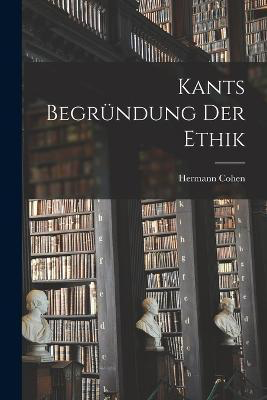
3:16: And that’s what Kant misses by assuming the self already exists. He doesn’t see the importance of self creation.
HC: Yes.
3:16: You admire the state almost as much as Hegel does, and tie it up with your notion of autonomy and self-consciousness don’t you?
HC: The highest and most exacting model of ethical self-consciousness is provided by the right or law of the state. The state represents the most real, the most lively and the highest good of man.
3:16: Because the system of laws provided by the state give me the boundaries of myself, my self-consciousness, my self-conception?
HC: Yes. Remember Richard, these are ideals. Their validity is not to be confused with existence.
3:16: So you reject anarchism?
HC: Of course. Anarchism is a form of barbarism because it dissolves the bonds of the state upon which all law and order and culture rests. It commits a sin against humanity by undermining the self-consciousness of personality based on the state. It fails to appreciate the importance of self-discipline and self-rule which is the basis on which we form our self-consciousness as legal subjects.
3:16: Can’t love work instead of a state?
HC: No because love has preferences.
3:16: What about Savigny’s notion of the people rather than the state?
HC: Let me remind you of a poet who writes that the other is ‘ the one I love but do not know’ but who really means ‘ the one whom I do not want to know!’ The state alone gives impartial and universal laws.
3:16: So is nationalism a bad thing?
HC: It should be seen only as an instrument to promote the unity of the state, it should never become an end in itself or become the source of law. The latter paves the way for barbarism. Excessive nationalism is the worst enemy of all social and cosmopolitan forces, on whose decency and activity all progress of the state depends. Race is a form of atavism with a basis in sexual perversity.
3:16: Are you a socialist?
HC: Yes. The heart of the Jewish ethic is socialist. Its faith in progress, equality and happiness for all, the Sabbath which reminds us that all human beings should have the same share of work and leisure and the vision of the ancient prophets imagined a society of complete equality where all lived in peace and harmony. The chief virtue of the state was the creation and enforcement of justice and not least a form of economic equality.
3:16: Marx thought the state would wither way and we’d have communism.
HC: He fails to explain the principles of justice by which this would happen. He tells us that humans make their own history but he also tells us that history, as an inscrutable force, makes them do what they do.
3:16: What does a socialist state look like to you then?
HC: Universal suffrage. And the basic pillar of the modern state is universal education. I oppose two-tier education which gives intellectual education to the socially and economically advantaged and moral education to the working classes. Limitation of property is an essential condition but there is no historical or logical reason for the abolition of property. Property as the crux of ethics is an adiaphoron, a matter of indifference.
3:16: You’ve talked about pure thinking in terms of logic, and pure will in terms of ethics. So when we come to your final work on aesthetics what will you pick out as the pure subject matter of aesthetics?
HC: Like I told you earlier , pure feeling. A feeling that creates its own content. It is love.
3:16: So this is a creative love , the force behind all human activity that we find in Plato’s Symposium with Diotima.
HC: Yes. Pure feeling is nothing less than love of the nature of man. The primal model of art is human nature and the primal feeling behind the creation of art is love of humanity.
3:16: Nietzsche would disagree. He sees it as the overturning of values.
HC: Independence in art does not depend on the overturning of values as the fashion of the day would have it but going back to the most basic values, those about the dignity of man.
3:16: It might strike people as a bit of an old fashioned aesthetics that doesn’t anticipate the art of when you were writing – Schoenberg, Roger Fry and the post-impressionists – Cezanne, Gauguin , van Gogh et al
HC: Well Richard, the problem of aesthetics is the problem of systematic aesthetics. The system of philosophy is to show the unity of consciousness.
3:16: Right. Now, as you’ve said earlier, the transcendental method has to start with facts – logic starts with mathematical physics, ethics with the fact of jurisprudence – so what are the starting facts of aesthetics? Kant seems to think that there aren’t any because here can’t be any objective facts about taste and genius is the talent that gives the rule to art, and genius is not law bound. If you agree with Kant doesn’t that end your project?
HC: No. We start with yhe laws of feeling. The characteristic lawfulness of aesthetics becomes apparent in genius, and genius is the legislator of art because it is the expression for reason in art.
3:16: Is this an attempt to support German classicism against Romanticism, and why bother given that surely Romanticism is dead now?
HC: Long after the old romanticism was put in its grave it had still not died in its medieval roots; it wanted to resurrect itself in a modern mask disguised as metaphysics. It is because of romanticism that classicism lost its civil rights in the intellectual universe.
3:16: But aren’t you actually being a Romantic by putting love at the heart of aesthetics? After all, they bang on about love for the infinite, the desire for oneness with the universe and all that jazz all the time?
HC: That is not true love. The true object of love is some human being, some finite and frail mortal whose humanity is apparent to us.
3:16: You also make a lot of beauty, that other stalwart of classical aesthetics don’t you?
HC: The beautiful is the highest concept of aesthetics because no other concept can be opposed to it.
3:16: Why do you say that the sublime and humour are modifications of beauty? Why is the sublime opposed to humour?
HC: The sublime is a concept about human behaviour. There is a higher and lower limit to human nature. The sublime is the experience of aspiring to the divine. Humour is the admission that we are much like animals.
3:16: You think ugliness has a place in aesthetics don’t you, which is a bit of a break from what classicism usually claims?
HC: We cannot avoid ugliness in art simply because art should be a mirror of life. We cannot get rid of the animal bit of nature so we acknowledge it, accept it and make it beautiful. It is a mistake therefore to think that art only contains ugliness to make the beautiful shine more brightly.
3:16: You think the epic is the birthplace of poetry don’t you?
HC: Yes. The aesthetic meaning of the epic is a moment in the political history of nations and therefore in general a great moment in the spiritual development of the human race. The unification of people is the original problem of culture, which remains its highest problem. Poetry is in its origins a fundamental power of culture. It isn’t just entertainment but care and concern for the vocation of man and his moral horizons under the unity of a nation.
3:16: Homer is a key figure in this isn’t he?
HC: Yes. Homer puts freedom above conventional superstition. What a good fortune for European poetry that it had its origins in Homer, in his clarity and honesty, in his freedom from all complications, in his human sovereignty above all the ambiguities that arise from human beings in their relations to the Gods.
3:16: So for you Homer’s world is aesthetic not religious with eros as the fundamental driving principle of his epic?
HC: And beauty. Beauty is for the hero the goal and purpose of human existence.
3:16: The lyric is the poetry of love so presumably the lyric is very important to you?
HC: The lyric is the form of poetry for the individual and to express love an author becomes divided into an I and thou. Love as longing is the characteristic passion expressed in the lyric.
3:16: Don’t the Romantics do this?
HC: There is always a danger that the lyric turns into passion., which is a degenerate form of love. Sexual needs and urges need to be sublimated so they are controlled and directed by morality. The romantic lyric is the poetry of passion not love. The fallacy of Romanticism is naturalism, the idea that feelings are in order just as they are given, which leads to the glorification of lust and a justification of sensuous power.

3:16: So the lyric must portray the longing for the supersensible , the longing to transcend humanity for the highest good.
HC: Yes.
3:16: Your theory of drama is pretty Nietzschean.
HC: Well, it’s true that I think that Dionysus was the original power of art. But that’s all we connect over. If the object of the epic is the event, and the object of the lyric is individual experience, the object of drama is action.
3:16: And action in drama is intimately involved with the role of the spectator isn’t it?
HC: Yes. The narrator who confesses his experiences to a broader public is the prototype of the actor.
3:16: So for you meaning is a two way thing – the actor and the spectator interact. Is this a spiritual relationship, an aesthetic one if you like, that exists beyond the mere spectacle on the stage?
HC: Yes The hero suffers and dies on the stage but lives on in the memory of the audience. The aesthetic individual is therefore immortal, indeed eternal.
3:16: Why is the notion of fable important to the content of drama?
HC: Drama is concerned with the interaction between the collective and the individual. Modern tragedy shows the individual dominated by the collective. Its task is to justify the moral order to show how the suffering of the individual redeems itself by conforming to natural justice.
3:16: You hardly have anything to say about the novel which of course romantics regarded highly. And music for you isn’t imitating anything in the natural world, including mankind, but is creating a new pure world of aesthetic conscousness. If so, how can it be humanistic? How can man be the centre of this aesthetic universe as you claim aesthetics must?
HC: Music brings the self of pure feeling to a new height. Mozart is the great master of opera, and his operas can be considered as the perfect synthesis of the two elements of beauty, the sublime and humour.
3:16: The other art forms you discuss are the ones that focus on space shaping or space forming – architecture, sculpture and painting. You think that in these the aesthetic experience is caused by the interplay between the enclosed space of the art and the infinitity of space beyond the art. Is that right?
HC: Well, when I discuss the Poseidon Temple in Ancient Greece I talk about the connection of closed within free space and the sensation that causes on the onlooker. Space is important but so is movement. A building is a virtual movement. A building’s peace in movement is based on the experience of persistence not space.
3:16: You don’t make as much of the experience of light in these arts as I would have expected.
HC: Even in darkness pure thought could construct the totality of space Richard. Light is the ideal Gothic of northwestern French cathedrals, where light gives the illusion of having the power to dissolve all sensible masses. It is a mixture of worldliness and joy of life combined with supernatural striving. The ambiguity betrays a glistening, powerful but pompous insincerity.
3:16: So light is medieval, Romantic and superstitious. I get it. You’re a classicist! But where does love of man fit in with architecture?
HC: When it starts building for the masses.
3:16: What about the art of sculpture? If sculpture is copying natural forms isn’t that a matter of math, cognition – and so logic - not aesthetics? And if so, then aesthetics here isn’t autonomous but subject to cognition after all.
HC: No. The art object is a necessary correlation for subjective consciousness. Its form has to be treated in relation to our physiology rather than logic.
3:16: What about religious art? Doesn’t that place art in the hands of ethics?
HC: Basically, pure art can only proceed if it has full sovereignty even towards religion. In Christian art sculpture no longer had its own life. Here it condemned itself to the underworld.
3:16: Really. Michalangelo’s David?
HC: It's the spirit of freedom that breathes through it, not the religious.
3:16: You say that painting focuses more on the meaning of the nature of man whereby the unity of man radiates out into nature. So are landscape paintings a form of pantheism and not to be counted because they rest on bad metaphysics?
HC: Not at all. What is Hercules , what is Prometheus against the simplicity of nature? The one burned to death on the mountain, the other died chained to rock. Landscape is an educator, the call to great humanity.
3:16: You deny that colour is a secondary form but is primary, and the foundation of all painting don’t you, and in this way make sense of impressionism where lines get dissolved into packets of colour and modern physics in that the modern physics replaces geometric extension with packets of energy?
HC: Yes. Colour is the daughter of light and light the mother of being, the genuine mother of material nature.
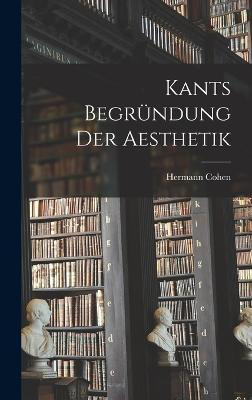
3:16: So we’ve discussed your neo-Kantianism and your Judaism. I guess now what I need to ask about is how you put these two hugely important aspects of your thinking together. Kant was a racist wasn’t he, an antisemite who prophesised the euthanasia of Judaism and called it not so much a religion as a collection of statutory laws.
HC: Well, Kant was no specialist in questions of religion and the science of Judaism.
3:16: So you ignore Kant’s personal views. Wasn’t he influenced by Spinoza’s idea that Judaism was a purely political doctrine supporting the ancient Jewish state?
HC: Personally he was. He listened to Spinoza’s humanly inconceivable treason and hatred against Judaism. Spinoza’s critique of Judaism poses the most difficult obstacle and therefore a great misfortune because his Tractatus has been taken as the authentic source of Biblical and rabbinical Judaism. Spinoza remains the chief accuser of Judaism before the Christian world. But there is a fundamental rationalism shared by Kantianism and Judaism. Very early on its scholars and scribes strived to justify their religion through philosophy. And the entire Jewish tradition from Sa’adia to Maimonedes was at one with Kant in rejecting happiness as a criterion for morality. Kantian and Jewish ethics are about duty and founded on the idea of law.It is also based on reason. They agree in their moral doctrines. Both are egalitarian, cosmopolitan, and pacifist.
3:16: Just a quick point – you used to admire Spinoza. Is it because antisemetic journalism uses the idea of Judaism as a political doctrine supporting Zionism, the idea that Jews are selected apart from the rest of humanity and so on that you’ve latterly turned against him in public?
HC: Well Richard, the evil demon of Spinoza has provided the pestilential atmosphere in which hatred of the Jews indulges in its orgies. Yes, some of Spinoza’s core dicta have found their way into the anti-Semitic press.
3:16: Wow. And you want to keep Spinoza banned don’t you. Anyway, moving on… In Kant reason is the source of the law and in Judaism God is. That’s a big difference. One has revelation at its heart, the other mankind’s intellect.
HC: Don’t forget that I say that God is a bridge between the normative and natural realms in Kant. In Judaism God is absolutely different from any other being, it represents spirituality and its meaning lies in the problem of the moral world. Only God has being. Only God is being.
3:16: So its not pantheism nor love of Christ? So is our relationship direct?
HC: No priest, no representative of God, not even a divine-human may say I am the way to God. The Thora is not law but is teaching.
3:16: So there’s no need for priests or specialists. Everyone can teach themselves by studying the Thora? Is this one of the reasons you say Judaism is the most progressive religion?
HC: The Talmud says: You shall be my kingdom of priests. There is no difference between faith and knowledge. Judaism is progressive. The Sabbath overcomes social oppositions and promotes the unity of culture. It's a social labour law. It works against slavery. Judaism has been guilty of one-sidedness, with rituals and customs belonging to the history of mythology which all belongs to the dark side of old Judaism. But its centre of gravity lies in the world. Judaism is the penetration of all life with the thoughts and demands, with the feelings of religion. Its freedom is purity of heart, the opposite of original sin. Judaism’s messianic tradition is the deepest cultural source of moral humanity. According to the doctrine of the prophets, redemption of the individual human being with the assistance of religion is one that man has to complete himself.
3:16: What about the idea that Judaism is just about following the letter of the law and ignoring its spirit, the kind of thing Christians say about the Old Testament compared to the New?
HC: Nonsense. The main point behind the commands is to make an honest heart.
3:16: One of the things you have written about is emancipation, and of course this touches on the Prussian Edict of Emancipation of March 11th, 1812 which granted Jews many of the rights of non-Jewish citizens in the state but goes to wider thinking about autonomy, freedom and slavery for you doesn’t it?
HC: Insofar as we are modern human beings and make the interest of our politics our chief concern, we celebrate this historical memory with the greatest and deepest joy of our cultural memory. Thanks to this right, this state has become my state, this land my fatherland. Emancipation comes from Roman law that treats children and slaves equally. There is an analogy between a merely protected resident alien and a slave. By recognizing Judaism as having the same rights as the Christian church the concept of the Christian church is uprooted. Emancipation is not a striving for power, a desire for external goods and pleasures.
3:16: Does Judaism have value for social ethics then, for the ethics of Gesellschaft?
HC: I talk about an ethical idealism in contrast to the materialism of history. In Judaism the kingdom of God corresponds to this. The kingdom of God is the concept in which the concept of society absorbed all its innermost powers. What takes place in the kingdom of God is the constant reconciliation between man and God. There will never be any poor among you if you only obey your Lord and God. Keep the Sabbath and the maid and servant may rest as ourselves. The Sabbath represents the ideal of unity between human beings, the idea that they all have to work and that they all have to rest. Our nation is a nation only by its doctrine , the subjection of the nation under humanity.

3:16: So Judaism is about doing things right by humanity here and now on earth not in a future otherworld?
HC: The realization of morality on earth, its tasks and its goals, this and nothing else is what we mean by the idea of the Messiah. The human alone brings this about. The ideal of a future life is the continuation of moral striving in earthly life, as the ideal of a moral life.
3:16: You’re not in tune with many of your contemporaries and their ideas – Nietzsche and atheism, Buchner and materialism, Schopenhauer and pessimism, Kierkegaard and existentialism and the Idealism of Fichte, Schelling, Hegel, Trendelenburg and Lotze seems dead in the water! What do you make of this modern age and what is your approach to it?
HC: For every person of culture his religion is that work of art in which the mechanism of his life has its soulful unity. Judaism is the religion of the transcendent God. The philosophical expression of this God is Plato’s highest idea, the idea of the good.
3:16: So a God of the heart or as nature is a mistake?
HC: It stands completely outside and beyond this world because it represents the normative as opposed to the natural. The pantheism of Spinoza wants to treat human affects as if they were a problem of geometry.
3:16: Are there implications for education in this modern world? You have written about the link between an aesthetic and a religious education haven’t you which I think addresses this?
HC: One of the reasons for the success of a Protestant education has been its aesthetic dimension. Religious painting, poetry, music and architecture have fostered feelings of religious devotion.
3:16: So Jewish education should do the same?
HC: Yes. Some of the most aesthetic passages in the Old Testament have been obscured or adulterated by their mixture with the New.
3:16: What about the prohibition against images in Judaism?
HC: True, it is the basic idea of our religion. But the influence of the Old Testament on poetry cannot be overestimated. The modern lyric has its roots in the Psalms.
3:16: But a transcendent God is beyond all aesthetic expression isn’t it?
HC: True, this God can’t have its Juno, its Psyche or its Maria. But its positive ideas lie in morality, the idea of the Messiah, the basic concept of modern ethics and the source of all religious art.
3:16: You’re a pacifist and cosmopolitan but you supported the 1918 war. Isn’t that a contradiction?
HC: Germany had to fight for sheer survival. The German army at that time was the education for the heroism of the German state.
3:16: Does your philosophy of religion represent the culmination or abandonment of your rationalism?
HC: It's the fulfillment Richard. My fate is of a peculiar kind. While there are people who make a sacrifice of the intellect, I make a sacrifice of feeling. You know how the deepest stirrings of my heart and the most inward feelings of spirit are bound up with our religion; but even in this my fate is abstraction, and only the pure can understand and tolerate me.
3:16: And finally are there five books you can recommend that will take us further into your philosophical world?
HC: 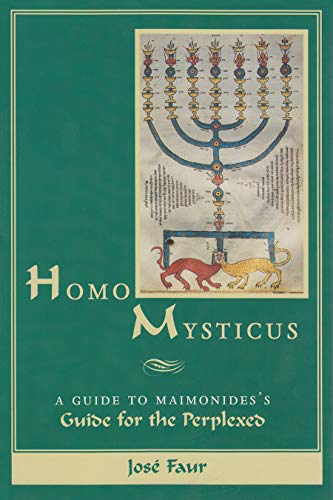
Maimonedes,
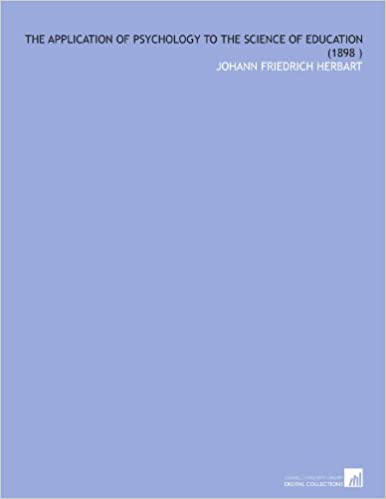
Herbart,
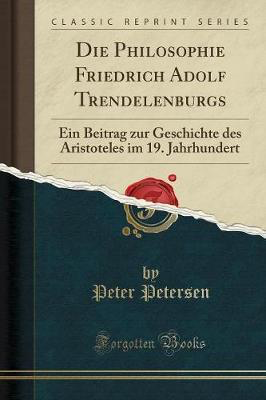
Trendelenberg,
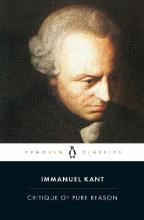
Kant,
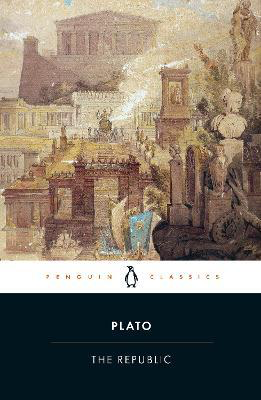
Plato
Other Interviews: Machiavelli, La Mettrie, Smith, Buchner ,Lange, Newton, Berkeley, Hobbes, Locke, Cudworth, Hume, Leibniz, Leporin Erxleben, Fichte, Schiller, Herder, Kierkegaard, Schelling, Kant, Dilthey, Marx, Descartes, Hegel, Schopenhauer, Nietzsche
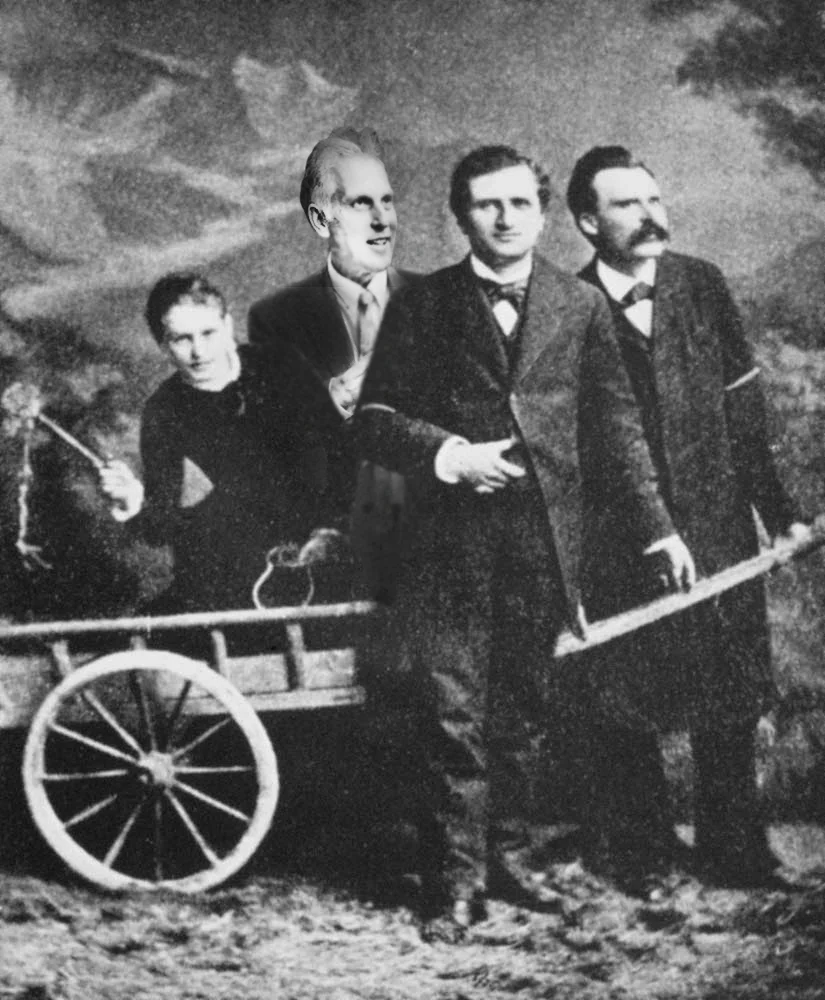
About the Author
Richard Marshall is still biding his time.